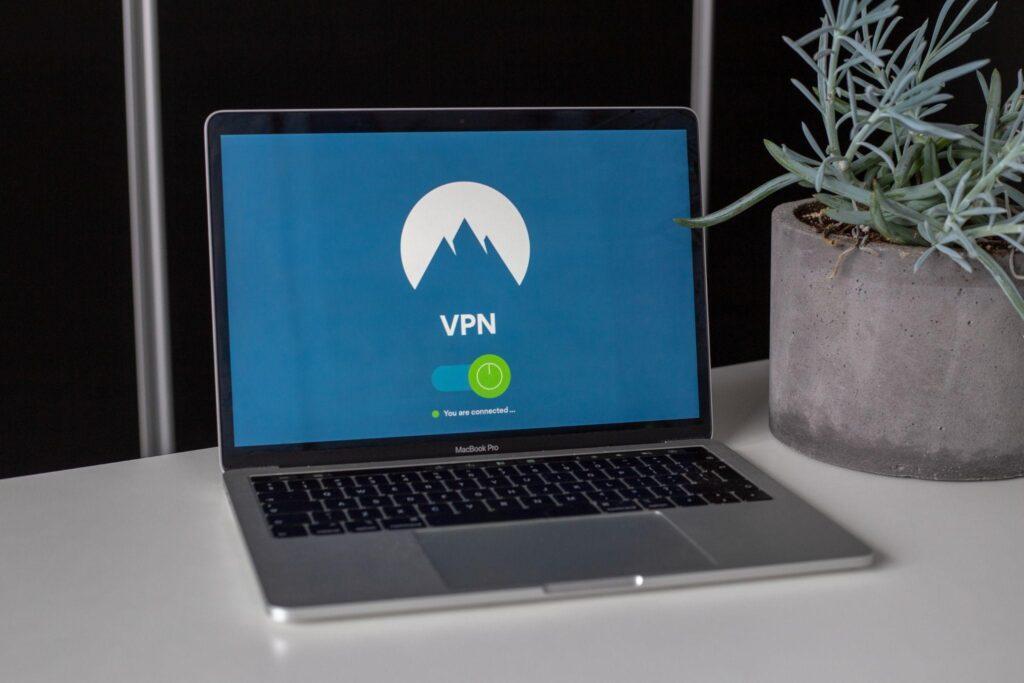Network security breaches are every business’s nightmare. A security breach could be anything from password attacks with further unauthorized system access to data leakage.
Whether it is a small start-up or a large enterprise with millions of dollars in turnover, a single network security breach can be detrimental to the reputation of any company, not to mention the financial losses incurred.
According to the 2021 Thales Data Threat Report, 45% of US companies suffered a data breach in 2020. Notably, this number does not include the number of breaches that were likely unreported or are yet to be detected. Even with such a high number of security breaches, 50% of companies spent only 6-15% of their security budget on data security.
Network security is equally important as any other aspect of the business.
If you would like to know how to prevent network security breaches in the workplace and ensure business data is safe and secure from external threats, read on.
Effective Ways to Prevent Network Security Breaches at Work

Good password policy
Password is the first line of defense against any cyberattacks. Therefore, ensuring your password is strong and unique enough is essential.
Here are some of the best password security practices to follow:
- Ensure your password is as complex as possible. We know how easy it is to forget a password, especially when it is a combination of letters, numbers and special characters altogether. However, long and complex passwords are one of the best ways to ensure no unauthorized entity can break into your network.
- Change passwords regularly. Using the same password for a long period of time increases the risk of security breaches and puts your company at risk for cyberattacks. So, when the system prompts you to change your password, do not ignore it. It will take you a few minutes to create a new password, but the benefits will be long-term security and protection of your business data.
- Avoid reusing old passwords. When that “change your password” prompt pops up, it is easy to get caught by the temptation to reuse the same password you had before. Avoid recycling old passwords or sharing the same password to log into multiple systems to keep your data safe and secure.

End dependence on cloud-based collaboration tools
Cloud-based collaboration tools are an effective way for teams to collaborate on a project, share information and stay connected.
However, some of these tools offer poor security and can put your business at a major risk of a data breach.
One of the recent data breaches happened to Slack, a popular cloud-based collaboration tool. In December 2022, the company reported a security breach where hackers were able to access the data from GitHub repositories. This was one of the biggest data breaches the company had to deal with, as it affected a decent number of its customers who store sensitive data on the GitHub repositories.
While cloud-based collaboration tools are effective for occasional data exchange, large enterprises should stay away from them and opt for a more secure and reliable solution, like custom software development.
A custom software solution is developed to fit the unique requirements of a business, including those of data exchange and security. Whatever your security needs, custom software will be built to fulfill them.
While standard cloud-based tools come with a set of pre-selected features, custom software solutions can be configured to include features such as encryption, access controls, compliance, network security, auditing and logging, infrastructure monitoring, regular updates and maintenance. All these features make custom software a reliable solution for network protection and data exchange.
Secure the router

Companies tend to spend money on firewalls, VPNs, and intrusion detection systems when looking to protect their networks from unauthorized access.
However, they often overlook such important aspects as securing the router. Using routers with out-of-the-box configurations is an easy target for hackers. By compromising routers, cyber-attackers can gain access to the company network and steal data, or even worse, use compromised routers in distributed denial-of-service (DDoS) attacks.
Businesses affected by DDoS attacks suffer monetary losses, service disruptions for their customers and, of course, reputational damage.
Changing the default passwords is one of the most effective ways to protect the router. It is recommended to set a 20+ characters long password for wireless access. It is also advisable to choose Wi-Fi Protected Access (WPA)2- Advanced Encryption Standard (AES) as the router’s wireless encryption scheme.
Securing your router helps protect the network and prevents attackers from gaining access to the company’s resources, including critical data. It also protects from vulnerabilities in reconfiguring the router and from using the router to launch further internal and external attacks.
Proper backing up of data
In the 21st century, data has become an asset for companies. It is also something that cyber-attackers are chasing after to exploit.
Thus, it is critical to properly store and back up assets such as those involving sensitive and private information.
Here are some of the most common ways for businesses to protect data:
- Cloud solutions. Cloud solutions are a popular choice for storing data, and more businesses than ever are turning to cloud solutions. Cloud backup solutions allow businesses to store off-site copies of all their business data and easily access it from anywhere. While cloud storage solutions are relatively affordable for everyone, some of them, especially those offering unlimited storage with unlimited user access, can be expensive.
- Use a Network Attached Storage (NAS) device. NAS is a file-level storage device that connects directly to the network and allows to store and retrieve data from a centralized location for authorized network users and heterogeneous clients. It is different from an external hard drive or a USB flash drive because it is always on and connected. NAS allows you to store data on a dedicated server, which means it is not prone to the same security risks as the laptop. NAS also comes with built-in security features such as password protection and encryption.
- Online backup service. Online backup services allow you to back up data by encrypting the files and storing them in a safe location. You can also choose to schedule regular data backups as an additional level of protection. Just like a NAS device, online backup services offer features such as password protection and encryption, so you can be sure your data is safe and secure. Additionally, some online backup services also support reverse ETL, which allows you to automatically extract data from your data warehouse and load it into your backup storage.

Data is the most valued asset of any organization. It is also something that criminals want to exploit. Storing and backing up valuable assets with private information is critical.
Backing up data can be considered another line of defense protecting you against ransomware.
Invest in Android Kiosk Lockdown Software
Another effective way to safeguard your business data is to use an Android Kiosk lockdown software. Such a feature is part of the AirDroid Business MDM solution and is designed for IT admins to help them with the remote management of Android devices.
Kiosk Mode is a lockdown mechanism that allows administrators to lock Android tablets into a single-app mode, whitelist websites and block unauthorized network access.
Once Kiosk Mode is enabled, device functionalities, like the status bar and notification bar, are disabled, and any changes made to any device settings become restricted for users.
With the rise of remote work, it has become essential for businesses to secure the devices used by their employees against unwanted access. Kiosk Mode has become the go-to tool for educational, retail, hospitality, healthcare and logistics sectors.

Installing centralized firewalls
A firewall is a network security system that screens all incoming and outgoing traffic according to a predefined set of rules set by a network administrator.
Firewalls prevent unauthorized traffic from accessing your internal network while allowing traffic that is deemed safe. A properly configured firewall acts as a barrier to various sorts of malware. Software firewalls come standard on most operating systems (Mac, Windows). They can also be installed as a standalone system to add another layer of security on a router.
Hardware firewalls are typical for larger networks and usually require a dedicated team to monitor and maintain them.
Companies of larger scale typically use two firewalls, a software firewall to protect company communications and a hardware firewall to protect the entire network.
“Dual” firewalls offer an unmatched level of protection as they allow companies to better control the traffic that passes through the network. Installing a centralized firewall significantly reduces the risk of a network security breach. A firewall should be kept on all the time for the best protection.
Manage visitors with a standardized check-in process
A standardized check-in is a process of screening all visitors before letting them into the premises. It involves using a visitor access control system to scan a smart passcode or a badge of anyone attempting to access the facility.
A check-in through visitor access control allows companies to track who is trying to gain access to the premises and helps keep unwanted visitors away.
Another way to ensure adequate network security is by using a visitor management system. Similar to visitor access control, it allows for screening all visitors before they are allowed on the premises.
To add another layer of protection within the company, a visitor management system can be incorporated into the company’s workflow for employee screening to ensure that only authorized personnel is granted access to highly-sensitive data.
Conclusion
Network security should be a top priority for any company. Having robust network security measures in place will minimize data breaches of all kinds and help safeguard the company’s assets.
Among different security measures, investing in educational programs on security issues is a top priority. You need to take part in educational security management programs and then enable your team by equipping them with the right security tools such as vulnerability management tools.
The risks of network security breaches are always there, and it would be wrong to say that one protection is better than the other. For a company that has a large number of assets at its disposal, the combination of both preventive measures and response protocols is the best way to protect against network security breaches.

Author’s Bio:
Dhruv Mehta is a digital marketing professional who works as a brand consultant and provides solutions in the digital era. In his free time, he loves to write about IT, SaaS and workplace insights. Follow him on Twitter or connect with him via LinkedIn.
Leave a Reply